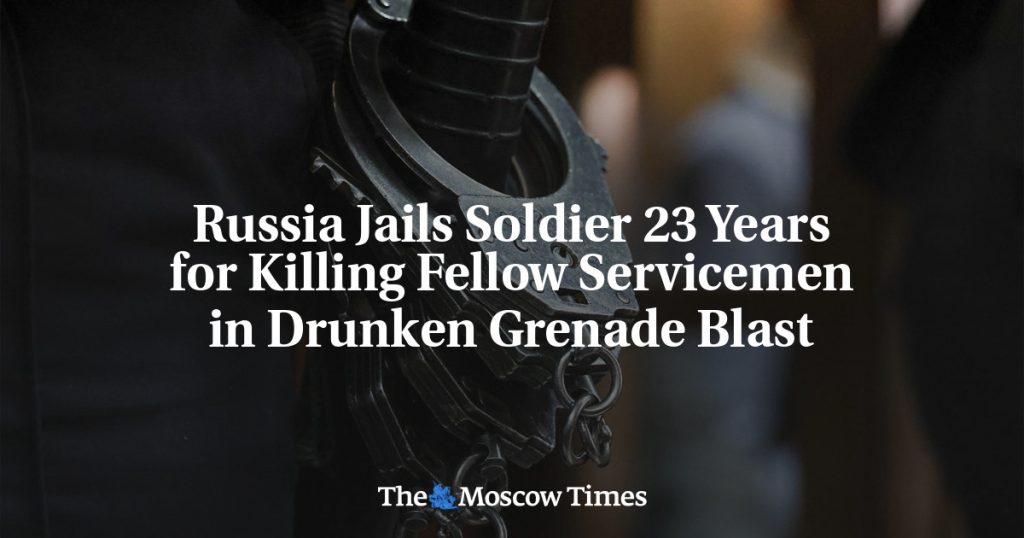A Russian military court has sentenced Junior Sergeant Dmitry Lobovikov to 23 years in prison for killing seven of his fellow servicemen and injuring 16 others with a grenade while under the influence of alcohol. The incident took place in January 2023 in southwestern Russia’s Belgorod region, where Lobovikov threw a live grenade into a sleeping quarter, causing a deadly explosion and fire. The court found him guilty of murder, illegal storage of explosives, and property damage, with the jury believing he deserved leniency despite the severity of his actions.
Moscow’s Second Western Military Garrison Court announced Lobovikov’s verdict, sentencing him to 23 years in a high-security prison colony, imposing a fine of 70,000 rubles ($790), and stripping him of his rank. Prosecutors had requested a 24-year prison term for the defendant, who can appeal the sentencing before it becomes final. During the trial, Lobovikov pleaded for acquittal, claiming he had no intention of killing his comrades and attributing his actions to stupidity and alcohol. Despite his remorse, the court held him accountable for the tragic outcome of his reckless behavior.
The sentencing of Lobovikov has shed light on the serious consequences of military personnel engaging in irresponsible behavior while on duty, particularly when intoxicated. The tragic incident resulted in the loss of multiple lives and injuries to several others, highlighting the importance of maintaining discipline and sobriety in military settings to prevent such disasters. The court’s decision to hand down a lengthy prison term to Lobovikov serves as a reminder of the gravity of his actions and the need for individuals serving in the armed forces to adhere to strict codes of conduct and ethics.
The defense presented by Lobovikov during the trial, citing stupidity and alcohol as factors leading to the deadly grenade incident, raises questions about the influence of substance abuse on decision-making in high-stress environments such as military barracks. While his remorse and lack of intent to harm his comrades may indicate a degree of regret and accountability, the court ultimately held him responsible for the fatal consequences of his actions. The appeal process following the sentencing will provide Lobovikov with an opportunity to challenge the court’s decision and seek a possible reduction in his prison term.
The verdict handed down by the military court reflects the seriousness of Lobovikov’s offenses and the need for justice to be served in cases involving the loss of life due to negligence and misconduct. The legal proceedings surrounding the grenade incident have highlighted the challenges faced by the military in maintaining discipline and order within its ranks, particularly when individuals exhibit reckless behavior that puts the lives of their colleagues at risk. The court’s decision to impose a lengthy prison sentence on Lobovikov sends a strong message about the consequences of irresponsibility and recklessness in the armed forces, aiming to deter similar incidents in the future.
As Lobovikov grapples with the repercussions of his actions and the prospect of serving a lengthy prison term, the case serves as a cautionary tale for military personnel about the importance of adhering to rules and regulations, especially when handling dangerous weapons and explosives. The tragic outcome of his decision to throw a live grenade while intoxicated serves as a sobering reminder of the potential consequences of disregarding safety protocols and engaging in risky behavior. While the court’s decision may provide a sense of closure to the families of the victims, it also underscores the broader implications of individual actions on the well-being and security of military communities.


